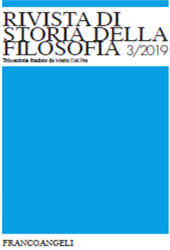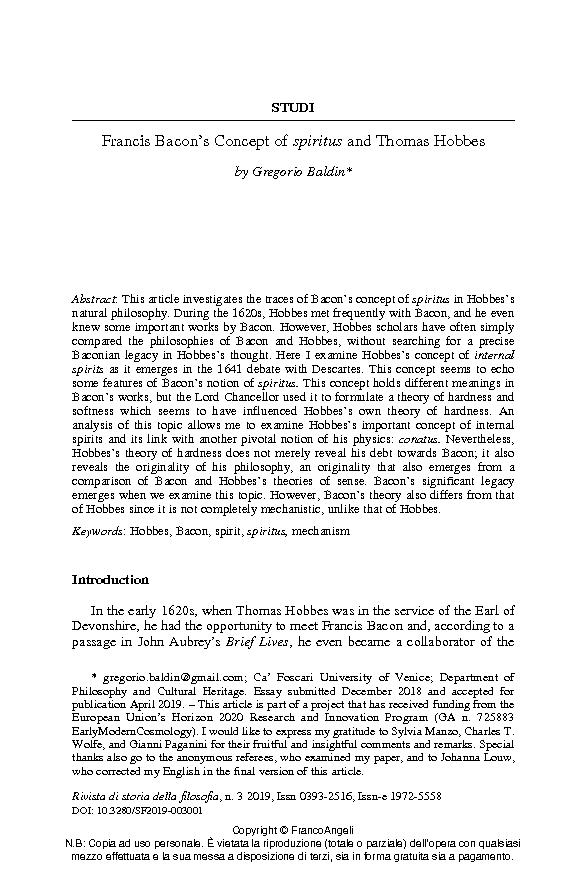Francis Bacon's Concept of spiritus and Thomas Hobbes
401-430 p.
This article investigates the traces of Bacon's concept of spiritus in Hobbes's natural philosophy. During the 1620s, Hobbes met frequently with Bacon, and he even knew some important works by Bacon. However, Hobbes scholars have often simply compared the philosophies of Bacon and Hobbes, without searching for a precise Baconian legacy in Hobbes's thought. Here I examine Hobbes's concept of internal spirits as it emerges in the 1641 debate with Descartes. This concept seems to echo some features of Bacon's notion of spiritus. This concept holds different meanings in Bacon's works, but the Lord Chancellor used it to formulate a theory of hardness and softness which seems to have influenced Hobbes's own theory of hardness. An analysis of this topic allows me to examine Hobbes's important concept of internal spirits and its link with another pivotal notion of his physics: conatus.
Nevertheless, Hobbes's theory of hardness does not merely reveal his debt towards Bacon; it also reveals the originality of his philosophy, an originality that also emerges from a comparison of Bacon and Hobbes's theories of sense. Bacon's significant legacy emerges when we examine this topic. However, Bacon's theory also differs from that of Hobbes since it is not completely mechanistic, unlike that of Hobbes. [Publisher's text]
Forma parte de
Rivista di storia della filosofia : LXXIV, 3, 2019-
Artículos del mismo número (disponibles individualmente)
-
-
Información
Código DOI: 10.3280/SF2019-003001
ISSN: 1972-5558
KEYWORDS
- Hobbes, Bacon, spirit, spiritus, mechanism



